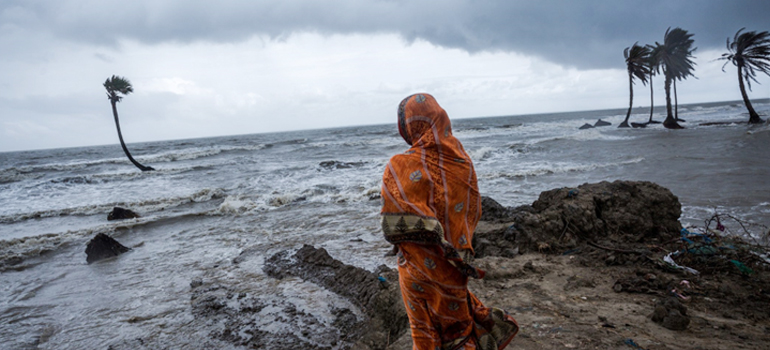
Summary
The researchers have developed a normative framework which highlights that the prevailing international law is barely adequate to protect the entire class of forcibly-displaced people.
The paper was published In the reputed peer-reviewed journal WIRES Climate Change.
An Indian Institute of Technology (IIT) Madras researcher and an independent research scholar have suggested a normative framework to address cross-border migration due to climate change.
This issue has been taken up by Sudhir C. Rajan, Department of Humanities and Social Sciences, IIT Madras, and Sujatha Byravan, an independent scholar. They have proposed the formation of a normative framework for responses to address cross-border migration.
They have made this proposal in a research paper titled “Cross border migration on a warming planet: A policy framework” in the reputed peer-reviewed journal WIRES Climate Change.
“In recent years, the increased risks of environmental hazards, including climate change, have intensified the push to migrate. For instance, the residents of the teeming slums in Dhaka, Bangladesh, are on the frontlines of a climate crisis. People living along the coast have been migrating to Dhaka due to monsoon flooding and cyclones caused by rising sea levels. For them, the worsening climate change is not a faraway threat. It’s a grim reality,” said Rajan.
With climate change intensifying the push to migrate, the researchers have suggested that all asylum seekers have to be absorbed into host countries under the principle of “non-refoulement” to ensure that refugees do not get forced to return to their home countries.
Also, asylum seekers from vulnerable zones must be absorbed in host countries in keeping with their greenhouse gas emissions. The researchers conclude that given the severity of the anticipated global environmental changes and associated harms, taking early and appropriate action is vital.
“There is an urgent need to ensure that people from countries that have emitted very little greenhouse gases are not left fending for themselves. Climate exiles or migrants have no legal standing. These are the kinds of issues that ought to be addressed in the climate negotiations track of loss and damage under non-economic losses,” said Byravan.
Original News Link
https://www.iitm.ac.in/happenings/press-releases-and-coverages/iit-madras-researcher-independent-researcher-urge-countries